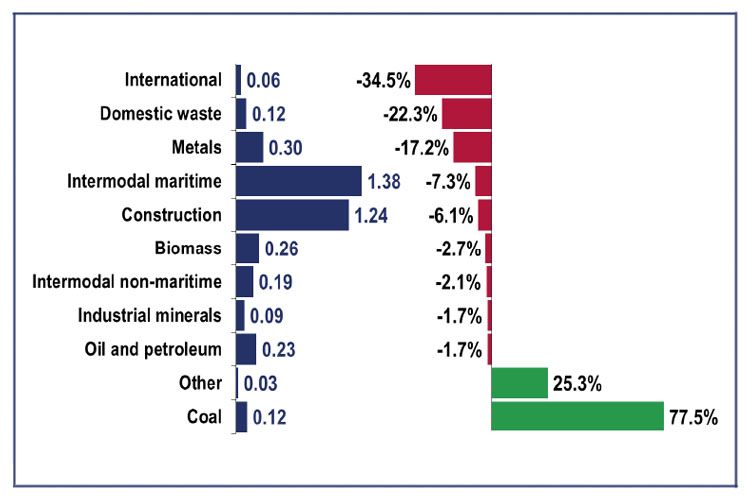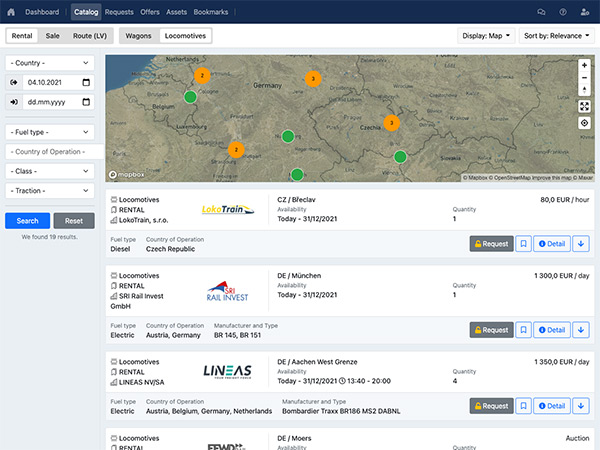It results from data from the Office of Rail and Road.
The total volume of freight moved was 4.00 billion net tonne-kilometers in the latest quarter (1 July to 30 September 2022). This was a 6.4% decrease in the same quarter the previous year (1 July to 30 September 2021). It was the lowest July to September quarter in the time series, excluding July to September 2020 during the pandemic. There were fewer days available for transporting freight in July and August 2022 due to the railway industry strikes, and in September 2022 due to the additional bank holiday.
Most commodity groups saw a fall in freight moved volumes compared with the same quarter the previous year. Intermodal maritime saw a reduction of 7.3%. The continued disruption to deep sea shipping and supply chains is likely to have contributed to this. Reductions in consumer spending have affected imports of non-food consumer goods as the pre-Christmas surge, which normally starts in the July to September quarter, was not evident. There have also been ongoing production problems in China due to the pandemic and extreme heat waves. Intermodal maritime has the largest market share of freight moved, comprising 34.5% in the latest quarter.
International volumes had the largest percentage decrease, with a reduction of 34.5%. There were 0.06 billion net tonne-kilometers of international freight moved, which is the lowest value since the time series began in 1998. There has been a large reduction in a key flow following restructuring in the steel industry.
Domestic waste saw the second largest reduction with 22.3%. A fall in online retail sales and fewer home deliveries have contributed to this. All months in the quarter saw a reduction in online retail sales, with August seeing the biggest reduction of 9.5%.
Volumes of metals fell by 17.2%. Steel demand has gone down. Economic uncertainty amongst investors has led to reduced investment and fewer new projects starting which may require metals. Mills such as British Steel in Scunthorpe are being impacted by global rising energy costs.
Coal volumes have seen a large increase, rising by 77.5%, albeit from a low base. There has been a steep rise in coal imports to be used in generating electricity at the West Burton and Ratcliffe power stations. National Grid has contracted with these power stations, along with Drax, to be available as a backup in the event of power shortages in the coming winter, which is a measure to maintain energy supply security. In preparation for this, more coal is being transported by freight trains from ports such as Grimsby and Immingham.

